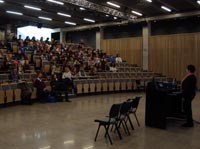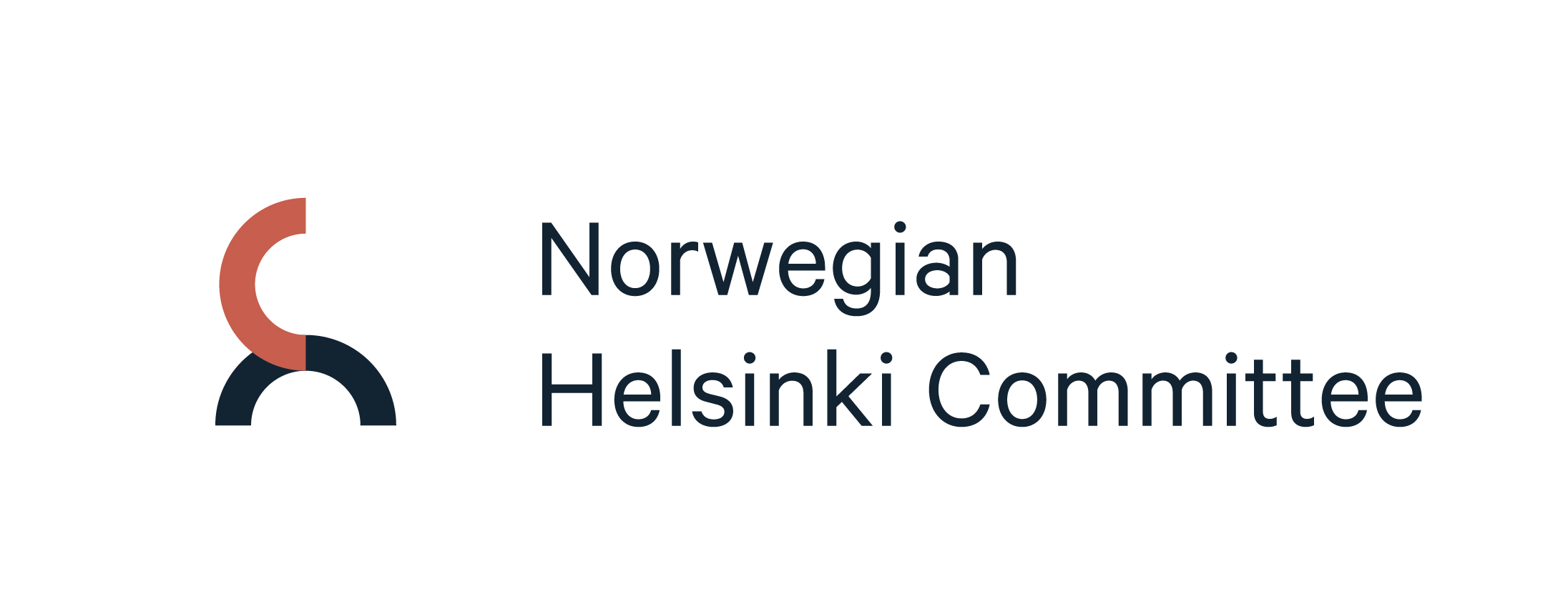The festival, which took place at Parkteatret, Cinemateket and Litteraturhuset, was built around the themes of economic injustice, protest movements, freedom of expression and “othering”: Why are some people disqualified as full human beings, how do institutions, culture and media participate in creating and maintaining outcasts, and how can we create a more inclusive society?
The Norwegian Helsinki Committee had the pleasure of inviting to Oslo Bosnian human rights activist and NHC partner Alma Masic. She debated the topic of othering with Indian filmmaker Stalin K. She also showed a trailer for the DVD Srebrenica – Mapping Genocide produced by the YIHR, which documents the process from marking out a specific group designated for persecution towards full genocide. In the debate, Masic spoke about how Bosnia is still divided by the fact that each of the three main groups have their own narratives and how this contribute to creating new myths where war criminals like Radko Mladic become heroes and defeats become victories. She also drew attention to the constitution which guarantees equality between Serbs, Bosniaks and Croat, but by doing so actually contributes to the marginalization of Roma, Jews and those opting for a secular, non-nationalist identity and refuse to register in any of the three cathegories by marking them as “others”.

The overall purpose of Masic’s visit was to present the documentation project “Srebrenica: Mapping Genocide” to a Norwegian audience and documentary filmmakers. The project gathers the basic facts about the genocide in Srebrenica and presents them with audiovisual effects in an organized, pedagogical and neutral way.
“As denial and lack of knowledge of the Srebrenica genocide are known problems, documentation projects containing only facts documented by several reliable sources needs to be promoted”, says Bjørn Engesland, Secretary-General of the Norwegian Helsinki Committee. In order to do so, NHC co-operated with the Center for Studies of Holocaust and Religious Minorities (HL-senteret) in organizing visits by Alma Masic to high schools in Nydalen and at Oslo Katedralskole. Introducing the project, she spoke about the war in Bosnia and how the communities were still divided, warning that the process leading to genocide could happen anywhere. Masic also spoke to students at the University of Oslo.
The film “Who killed Natasha”, which was shown as part of the festival program on Saturday, dealt with the murder of Russian journalist and human rights activist Natalia Estemirova, who was abducted and killed outside the Chechen capital Grozny in July 2009. After the screening NHCs Akhmed Gisaev, who worked closely with Estemirova in the organization Memorial, and Inna Sangadzhiyeva answered questions from the audience about the human rights situation in Chechnya.

As before, Oslo Dokumentarkino organized the documentary film festival in cooperation with the Norwegian Helsinki Committee and the other members of the Norwegian Human Rights House. The aim of the festival is to generate and stimulate debate on known and lesser-known human rights issues, raise awareness on human rights violations, demonstrate the importance of human rights documentary film making and provide a platform for activism and further engagement.
For more information about “Srebrenica – Mapping Genocide”, click here
